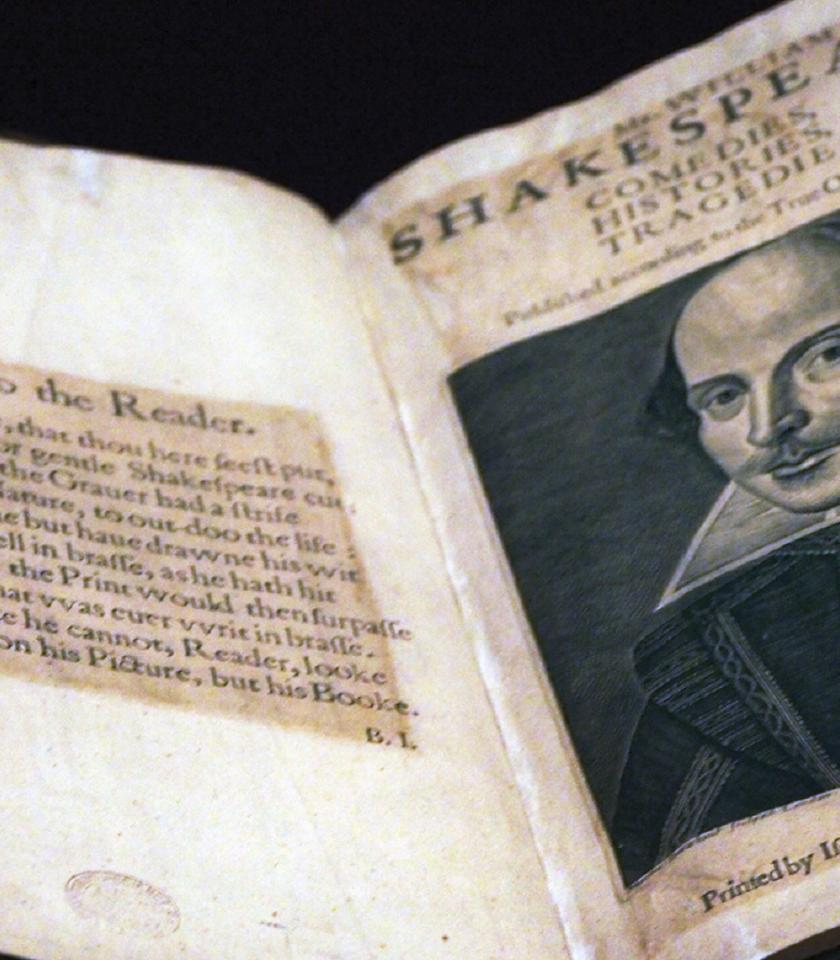There are some things about English that are known worldwide. You must have already heard all about the quick brown fox. Facts like this one can make a language more appealing to its learners and maybe even inspire them to look for more.
Introducing interesting and funny things in class about a language make it easier to learn. That’s why we’ve looked further and tried to find some lesser known facts about the English language. There must be at least one that you’ve never heard before and that’ll really take you by surprise!
Shakespeare added over 1500 new words and expressions to English
This one may be familiar to you. If you’ve read Shakespeare, you how important his part in the English literature is. However, his writing significantly affected the English language as well.
There are more than 1500 words – common words! – that we today use thanks to Shakespeare. He created new words in many ways, such as transforming one part of speech into another, or adding a prefix or a suffix that had never been used before with that particular word.
How often do you say eyeball, lonely, outbreak, submerge, torture or gossip? Well these are just some of the words Shakespeare adapted or made up that are now in common use.
English used to have grammatical gender
Grammatical gender is one of the things English got rid of over time.
It was present in the English language until the 13th century and it was expressed through articles! There used to be a masculine article ‘se’ and a feminine ‘seo’. Even when using pronouns, you wouldn’t say ‘it’ for things, as you do today, but you’d say ‘he’ or ‘she’, depending on the gender.
Some linguists believe the gender ceased to exist because of the Vikings. When they invaded Northern England, they brought their language, Old Norse, which also had genders. The trouble was they didn’t always match the ones in English, so they think people stopped using them to avoid complications.
The English alphabet used to have more letters
If you’ve ever thought English spelling is complicated, think again. Did you know it used to have even more letters than today?
As English has evolved it has been simplified. Thank goodness forthat because there’s no way English would have made it as a global language with a dozen additional letters.
For example, there was ‘thorn’, a letter that was written almost like p, but pronounced as today’s ‘th’. Also there was a ‘yogh’, pronounced as ‘ch’ in Middle English. And a long S that looks much like the letter F in cursive.
English is the official language of the air
If you want to fly an aeroplane, you have to speak English.
This isn’t a joke, as this rule was established after a terrible accident that happened at the Tenerife airport in 1977. Two airplanes collided because one of the pilot’s English wasn’t clear enough for the tower to understand what he said.Today if you want to be a part of aviation staff you need to take a proficiency test that includes aviation terminology as well as the capability to understand English when there are obstructions or interferences, as often happens over radio.
There are plenty of contronyms in English
What exactly are contronyms? These represent words that have two opposite meanings. The meaning can be elaborated from the context in which it’s used. Does this sound weird to you? How can a word mean opposite things?
The English language has plenty of examples. For instance, there’s the verb ‘to dust’. You can both dust your cake with some sugar powder, or dust the table to remove the dirt from it. To cleave can mean to cling or to divide. What about overlook? Are you monitoring someone or not noticing their mistakes?
Wow… English can be really confusing sometimes.
Some words have changed their meaning over time
If you could talk to someone from the past, there’s a chance a misunderstanding would happen. Why? In English, there are some words that changed their meaning over time. And not just a little – a lot!
For example, awesome. We use this word way too often, but it hasn’t always had a positive meaning. The word is derived from ‘awe’, which used to mean fear or terror. That’s where awful came from. So, awesome had a pretty negative connotation until the 1980s.
The word ‘furniture’ used to refer to any kind of equipment, but the meaning narrowed down over time. And, watch this, ‘girl’ used to mean a child! People used this word both for boys and girls.
The average English speaker knows only 40,000 words in English
Linguists say that the English language contains around one million words. You can’t really confirm this claim, because there are numerous words with multiple meanings, compound words, and so on.
But let’s say this number is close to reality. Do we really use one million different words every day? Of course not. There’s been some research on this topic and the results show the following: an average English speaker knows and uses around 40,000 words.
This refers to people who are native speakers and have a university diploma. If you want to single out the most frequently used words, common in everyday situations, the number falls down to 5000.
Now it probably feels like you’ve just met English for the first time! Some of these facts are funny, some of them are curious, but one thing is true: there’s plenty to learn about this wonderful language every day.


